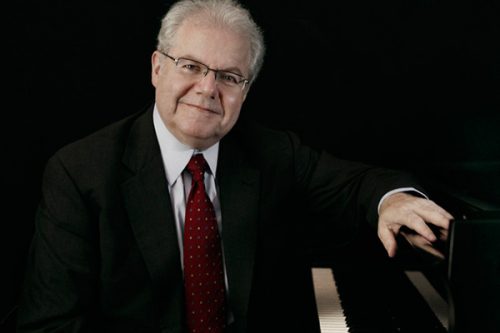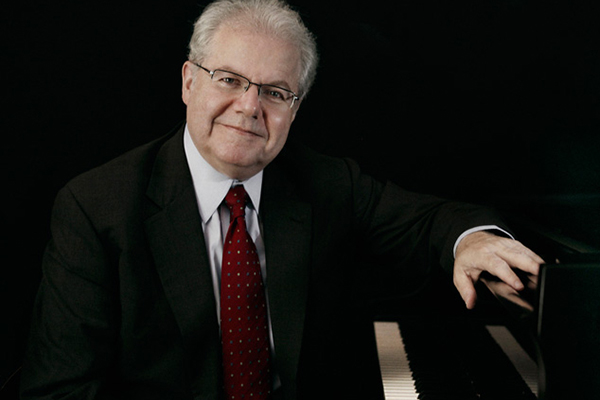 United States Chopin: Emanuel Ax (piano). Benjamin Franklin Hall, American Philosophical Society & Philadelphia Chamber Music Society, Philadelphia, 22.4.2021, reviewed from 24.4.21 stream. (BJ)
United States Chopin: Emanuel Ax (piano). Benjamin Franklin Hall, American Philosophical Society & Philadelphia Chamber Music Society, Philadelphia, 22.4.2021, reviewed from 24.4.21 stream. (BJ)

Chopin – Two Nocturnes Op.55; Polonaise-Fantaisie in A flat major Op.61; Three Mazurkas Op.56; Barcarolle in F sharp major Op.60; Nocturne in E major Op.62 No.2; Scherzo in E major Op.54; Nocturne in B flat minor Op.9 No.1 (encore)
Chopin is not what he seems. The familiar concept of the intense, fragile artist, with his exquisite sensibility, aloofness from the world and affecting and (in the nineteenth-century sense) picturesque consumptive cough: this is no more than a small and distorted part of the truth.
It is admittedly true that by the early- to mid-1840s, when all the works on this program were composed, consumption had gained an increasingly firm grip on Chopin. His health completely broken before the end of the decade, he died in Paris on 17 October 1849.
Before long the Chopin legend hinted at in my opening paragraph was fully formed. Nineteenth- century society had a talent, transferred in our day to the gutter press, for heightening every scrap of color in the lives of those who interested it. An early death was an open invitation to imaginative embroidery – there is a droll story that one particular Polish countess used to be pointed out as the only lady of her class in whose arms Chopin did not die. And, of course, if there was a breath of scandal to be inflated into a gale, so much the better.
But notwithstanding his affair with the novelist George Sand (pen name of Aurore Dudevant), Chopin was no Bohemian. On the contrary, once established in Paris in 1831, he was very quick to learn and adopt the social standards of the highest aristocratic circles, and his natural charm helped him to gain complete acceptance in them. Sensitive he certainly was, but on the whole he was no more aloof than his malady dictated. And though that malady made him, throughout his life, relatively fragile in a physical sense, his character was an unusually firm one even in his student days, when he responded to his teacher Józef Elsner’s urging that ‘Your genius should not cling to the piano: operas must make you immortal’ with an uncompromising declaration of his ‘perhaps too audacious but noble wish and intention to create for myself a new world’.
In due course, though less than eighteen years remained to him for the task, Chopin created that world, and the piano has never been the same instrument since. For many years now Emanuel Ax has been recognized as one of the most gifted denizens of that world.
At this recital, presented by the Philadelphia Chamber Music Society in collaboration with the American Philosophical Society, Ax (himself a member of the latter organization) took the stage with his familiar modesty of demeanor, looking more avuncular than ever with a newly acquired beard. Now in his early seventies, he lived up to that reputation with playing that clearly has not lost a smidgen of its authority.
Perfectly judged pedaling combined with digital wizardry and a comprehensive range of touch and tone-color to imbue each piece on the program, from the smallest-scaled nocturne or mazurka to the relatively broadly built polonaise, barcarolle and scherzo, with a grace and power of its own. The flights of delicacy that the composer called for in the upper reaches of the keyboard were given full play, while the more forceful elements of the music that I suppose in these days we are no longer allowed to call ‘masculine’ drew equally persuasive realization from the pianist. There could be no doubt as we listened to these enthralling performances that Emanuel Ax inhabits Chopin’s world with a conviction, skill and spiritual understanding unsurpassed by any colleague now before the public.
Bernard Jacobson
For more about the Philadelphia Chamber Music Society click here.
